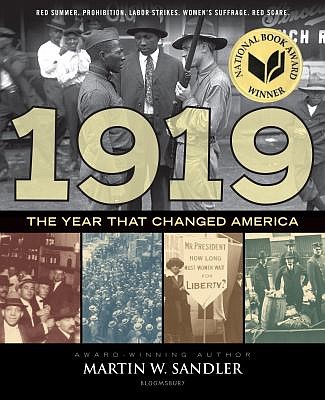The year 1919 was a pivotal year in the history of the United States - but not in any obvious way.
There were a series of events throughout the year that had a significant impact on our history. The book "1919: The Year That Changed America" by Martin W. Sandler takes on these events one by one, chapter by chapter, exploring why they happened and the impact on the history of our country.
After World War I, the world, as well as the United States, was ready for some form of normality. People did not yet realize the war had affected so many so deeply, and things would never be the same.
There was a new normal now.
The first event the book explores is the Great Molasses Flood in Boston. A tank with a 2.3 million gallon capacity was owned by a private company and had fallen into disrepair. There was a push to store molasses to make rum before the Prohibition Act was passed. An unusual fluctuation of temperature caused the tank to explode, sending 14 tons of raw molasses through the crowded streets. Waist deep in some places, tsunami type waves overtook the North End of Boston creating chaos, mangling the elevated train tracks, and causing houses to collapse. The incident injured 150 people, and 21 people died. As a result, the state of Massachusetts passed some of the strictest building code laws in the nation to ensure a calamity of this magnitude would never happen again.
The book also details the events now known as the Red Summer. This chapter details the intense racism and racial unrest that took place after the war. The book quotes author Cameron McWhirter, "Though no complete and accurate records on the eight months of violence were ever compiled, at least 25 major riots erupted and at least 52 black people were lynched."
Other topics covered were the passage of the federal woman suffrage amendment, the fear of communism overtaking the United States, the movement and formation of unions to improve worker conditions, and, finally, Prohibition.
One of my favorite aspects of the book was at the end of most chapters there was a section called "One Hundred Years Later" that examines how these important occurrences in history reflect today. I learned so much about a time in our history that is often ignored in our history classes. "1919: The Year That Changed America" won the National Book Award for Young Peoples' Literature, and I can see why. I can't recommend this one enough.
Lisa Cartee is a children's clerk at the Missouri River Regional Library.

